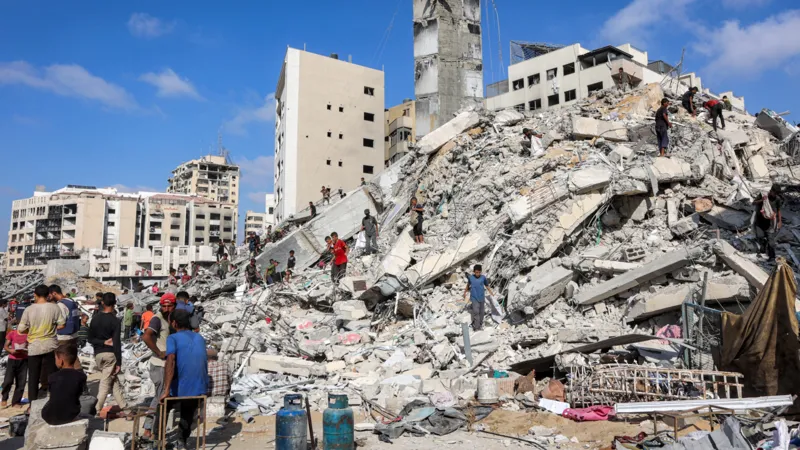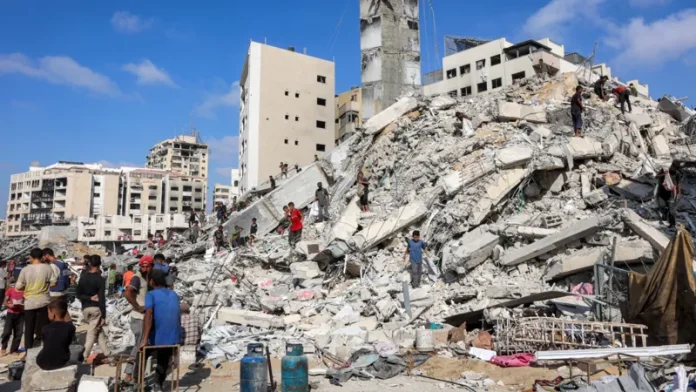
Israeli Prime Minister Benjamin Netanyahu has declared that US-Israeli ties have “never been stronger,” even as tensions rise over Israel’s surprise strike on Hamas leaders in Qatar. The comments came during a visit to Jerusalem’s Western Wall on Sunday, where Netanyahu described the alliance as “as durable as the stones in the Wall.”
US Secretary of State Marco Rubio, visiting Israel to discuss the Gaza war, admitted that President Donald Trump was “not happy” about the attack on Qatar — a key US ally — but insisted that Washington’s partnership with Israel remains “very strong.”
“Obviously we’re not happy about it, the president was not happy about it,” Rubio said before departing for Israel. “Now we need to move forward and figure out what comes next.” He emphasized that Trump’s top priority remains the return of all hostages and bringing the war to an end.
Qatar has strongly condemned the strike, calling it a “cowardly act” and a “flagrant violation of international law.” Qatari Prime Minister Sheikh Mohammed bin Abdulrahman al-Thani urged the international community to “abandon double standards” and hold Israel accountable. Doha will host an emergency Arab-Islamic summit on Monday to decide its next steps, but officials say they will continue mediating efforts to secure a ceasefire.
Netanyahu has defended the operation, insisting it targeted senior Hamas leaders responsible for orchestrating the October 7, 2023, attacks on southern Israel. But the move has drawn criticism at home, with the Hostages and Missing Families Forum accusing Netanyahu of sabotaging peace efforts.
Meanwhile, the Israel Defense Forces (IDF) have intensified their campaign in Gaza City, demolishing entire residential blocks in preparation for a ground offensive. BBC-verified footage from Sunday showed bombs leveling the al-Kawthar tower, while local officials reported at least 30 residential buildings destroyed in recent days.
The IDF said it has struck more than 500 targets in Gaza City in the past week, including alleged Hamas tunnel networks, sniper nests, and weapons depots. Israel estimates that 250,000 people have fled the city, though hundreds of thousands remain trapped, many too poor to relocate or unwilling to head south where Israeli airstrikes have also intensified.
“The bombardment intensified everywhere and we took down the tents, more than 20 families. We do not know where to go,” displaced resident Musbah al-Kafarna told Reuters.
The Hamas-run health ministry reported that 68 bodies were recovered over the past 24 hours, adding to a death toll it says has surpassed 64,800 since October 7. The UN has warned that an escalation could worsen what it already classifies as a famine in Gaza City, where at least 144 people have died from starvation and malnutrition, according to local officials. Israel disputes those figures but says it is expanding aid deliveries.
The war was triggered by Hamas’ attack on southern Israel last year, which killed about 1,200 people and resulted in 251 hostages being taken. Around 20 of those hostages are still believed to be alive in Gaza.

 Mzansi xxx
Mzansi xxx
